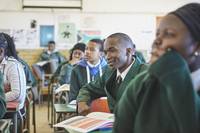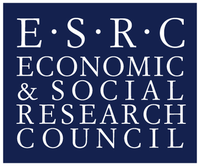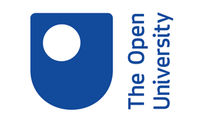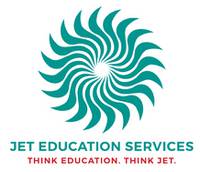
In South Africa and globally, there is growing interest in accountability in societies and institutions of the public and the private sector. It is one of the most prominent issues in education policy today and is relevant to improving the quality of local schooling outcomes as well as to raising the skills threshold of the national labour force in a globalised labour market.
Recognising this, the Economic and Social Research Council (ESRC) and Department for International Development (DfID) of the United Kingdom called for proposals for research projects in this area from developing and other designated countries including South Africa. JET Education Services, in partnership with the London Institute of Education (IoE) at University College London (UC) and the UK Open University (OU), submitted a proposal for a four-year research project that focuses on trust, capacity and accountability to improve learning outcomes in South Africa. We are delighted that our project was selected after a highly competitive evaluation process.
This is an innovative project which aims to support key stakeholders in 1) Building the capacity (financial and material resources, knowledge and skills) and trust to implement well-functioning assessment and inspection systems and developing effective ways to share; and 2) Using data and feedback from national and international assessments and school inspections with the purpose of improving learning outcomes of disadvantaged students.
The research will explore how the three elements interact with different levels and stakeholders in the education system, from national to provincial levels and from districts/circuits and schools to parents and communities. The project will focus on the complex structures and dynamics of these systems.
Download the Case Study ReportAuthor: Ehren, M.C.M., Paterson, A. and Baxter, J.
Published: December 2020
Accountability, capacity and trust to improve learning outcomes in South Africa: Comparative case study report |
Our methodology is based on qualitative and quantitative approaches and has three phases:
1. Conducting qualitative interviews in case study schools and interviews with national, provincial and district-level stakeholders in 2018:
The interview protocol and trust cross cultural board game used to collect qualitative data can be found here with an information sheet and consent form for participants. The interviews included questions on trust and accountability relations in schools and between schools and the district, and the school's capacity for improvement and support for improvement. The cross cultural board game allows us to understand how school staff understand trust and who they would trust.
2. Conducting focus groups in which we will identify the interactions (causal loops) which describe the interative relations between accountability, capacity, trust and learning outcomes in the first half of 2019; and
3. Collecting quantitative (assessment and questionnaire data) from a large sample of schools to identify patterns in the relationships between participants and conditions that improve or detract from achievement of learning outcomes:
Click here for the survey administered in an initial sample of eight schools (low and high performing schools in Gauteng and Kwazulu-Natal) to capture the social networks in schools, including relations of trust, accountability, and support for improvement.
The first phase of the project included a systematic literature review on 'trust, accountability and capacity-building to improve learning outcomes'. This working document provides an initial summary of the review with an introduction to the conceptual framework of our study and a set of initial hypotheses on how trust, accountability and capacity-building interact to improve learning outcomes.
The second phase of the project involved conducting case studies of trust capacity and accountability in eight primary schools: Accountability, capacity and trust to improve learning outcomes in South Africa: Comparative case study report
Publication of a journal article based on the study: Ehren, M., Paterson, A. & Baxter, J. (2019). Accountability and trust: Two sides of the same coin? Journal of Educational Change https://doi.org/10.1007/s10833-019-09352-4
Funding for this project is granted on the basis of bringing an innovative approach to the field. Consequently, limits to the funding preclude coverage of a national footprint.
UCL Institute of Education is the lead partner on this project.
The project will be undertaken between 2018 and 2022
See also New project aims to raise learning outcomes in South Africa




